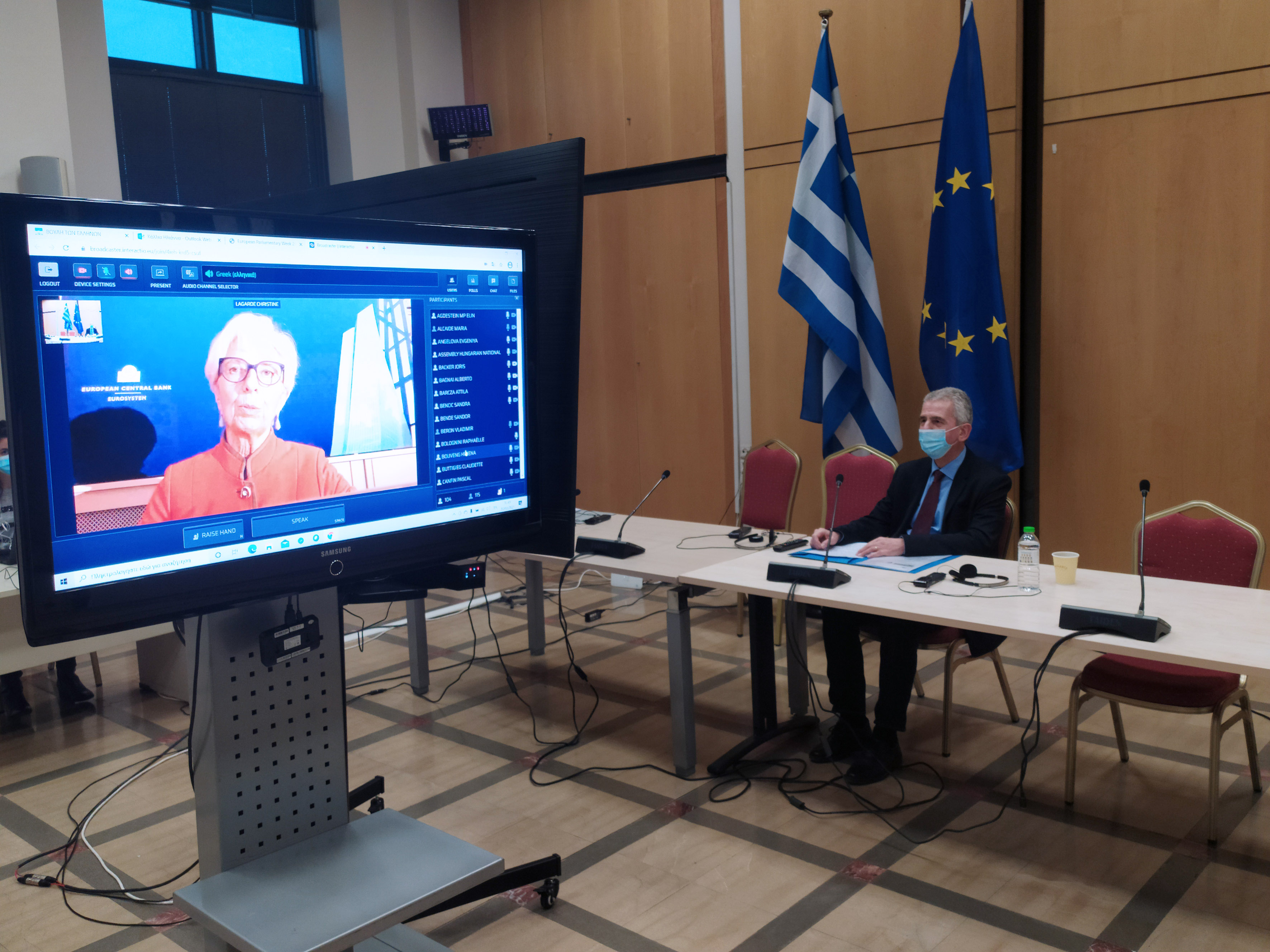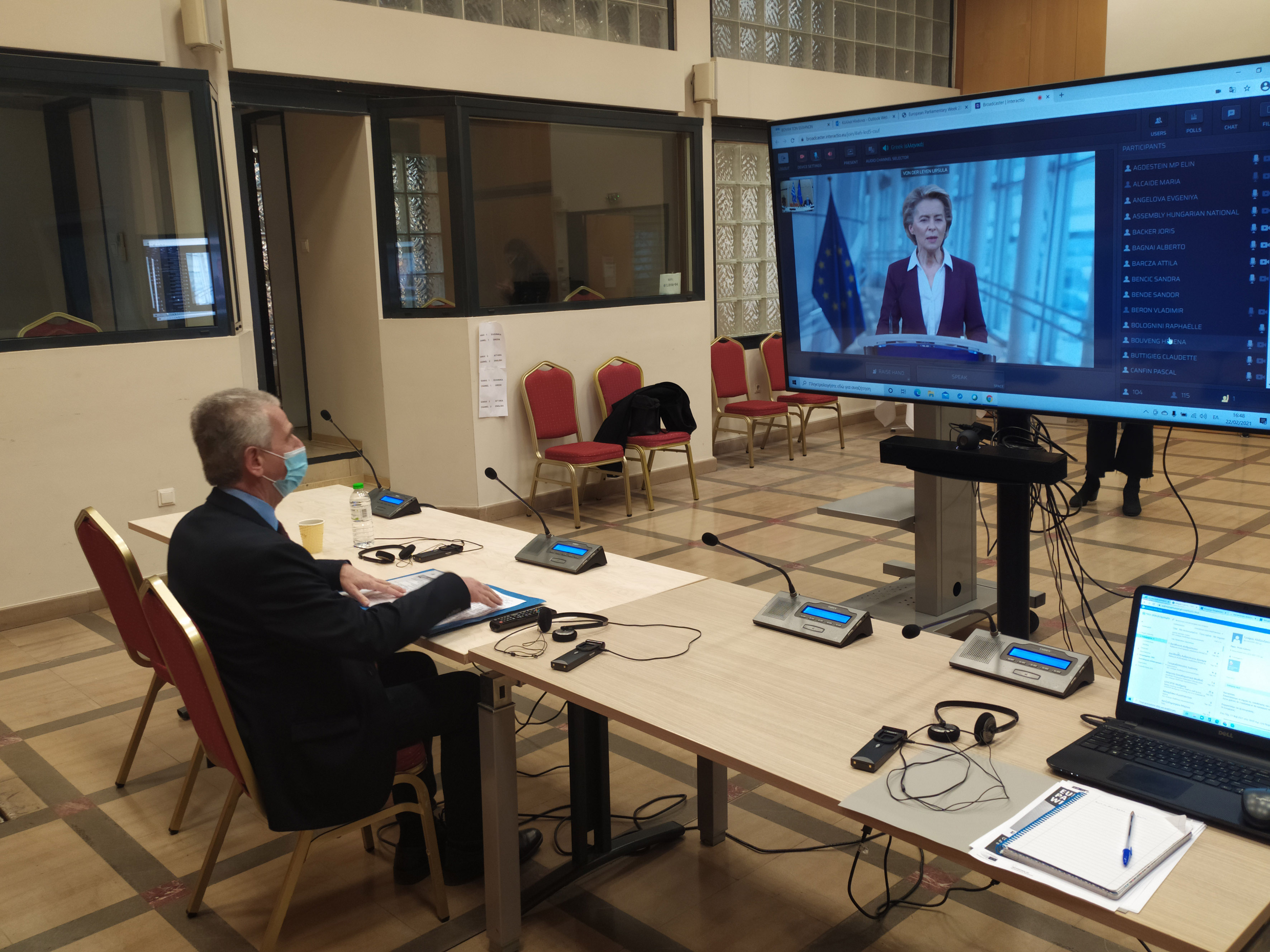Press Office
Athens, 23 February 2021
Teleconference on EU Economic Governance with participation of MPs and MEPs
A teleconference on EU Economic Governance with the participation of MPs and MEPs took place on 22 February 2021. The Hellenic Parliament was represented by the Chairman of the Permanent Committee on Financial Affairs, Stavros Kalogiannis and MPs, Neoklis Kritikos, Alexandros Meikopoulos and Babis Papadimitriou.
The teleconference was organised by the European Parliament and the Parliament of Portugal (country that currently holds the EU Council Presidency) in the framework of the European Parliamentary Week 2021. The President of the European Parliament, David Sassoli, and the President of the Parliament of Portugal, Eduardo Ferro Rodrigues, addressed the Conference, as did UN Secretary General, António Guterres, the IMF Managing Director, Kristalina Georgieva, the President of the European Council, Charles Michel, the President of the European Commission, Ursula von der Leyen and the President of the ECB, Christine Lagarde.
The programme of this year's conference included two sessions: 1) A panel discussion at the plenary session on climate, social and economic resilience in Europe, as well as on National Recovery and Resilience Plans and 2) Inter-parliamentary Committee meetings.
MP Stavros Kalogiannis, during his intervention in the Committee on Economic and Monetary Affairs, referred initially to the strong social and economic shocks that the pandemic has caused, forcing governments and European institutions to redefine priorities and economic policy tools, adding that the development of vaccines creates the preconditions for a gradual return to normalcy.
He welcomed the approval by the European Parliament of the Recovery and Resilience Facility and reminded participants that Greece was one of the first countries to submit a mature national recovery draft plan to the European Commission, based on four pillars: 1) green transition, 2) digital transformation, 3) the three-fold pillar of employment – skills – social cohesion and 4) private investments, while he added that approval is expected. Regarding the continuation of fiscal flexibility, Mr. Kalogiannis stated that the abrupt lifting of support measures could jeopardise recovery. Subsequently, fiscal easing must continue, taking into account the course of the pandemic.
MP Alexandros Meikopoulos intervened in the Committee on Employment and Social Affairs and, inter alia, characterised the hasty start of recovery programmes to create jobs a one way street, adding that a front-loaded disbursement of funds is necessary. He emphasised that businesses should be amply supported without discrimination, to ensure job security, and that debts linked to the pandemic should be written off. Regarding working from home, he stressed the need to protect employees and to establish a regulation on the right to disconnect.
MP Babis Papadimitriou, speaking at the Committee on Budgets, pointed out, inter alia, that the changes in the European Semester signify a turn towards a more flexible Europe, adding that it would be quite useful for the temporary changes in EU economic governance the cooperation between the national parliaments and the European Parliament to become more permanent, this strengthening transparency and facilitating the exchange of know-how and good practices. He also underlined that despite the initial victories against the pandemic, we should be prepared to extend the appropriate decisions to 2021 and 2022 and perhaps beyond.
High resolution images

1

2
Back